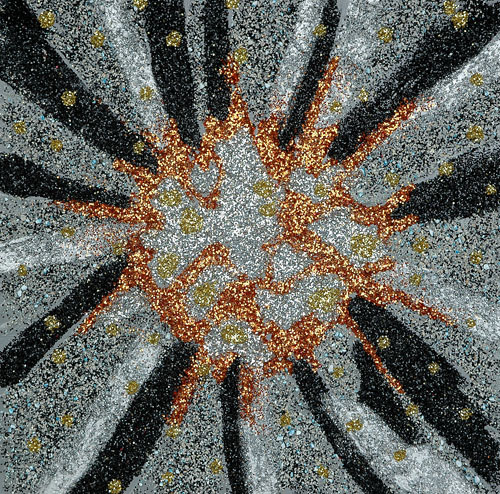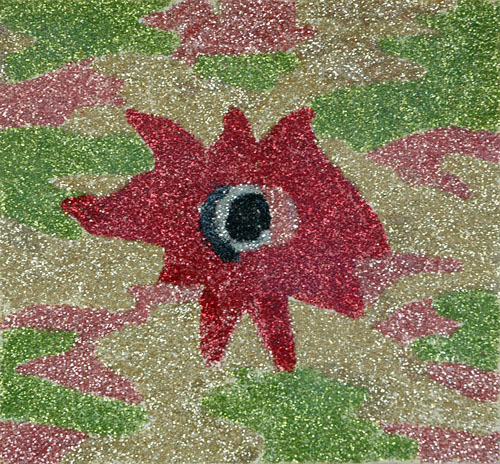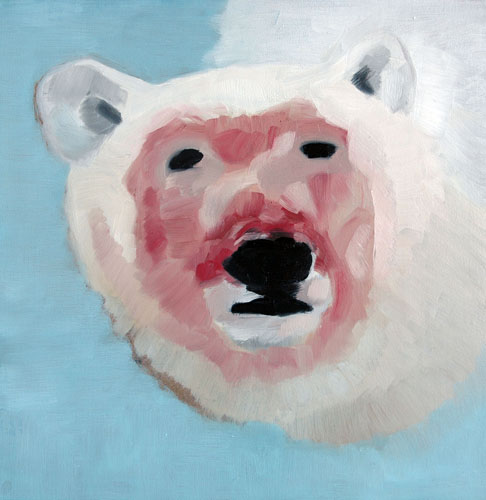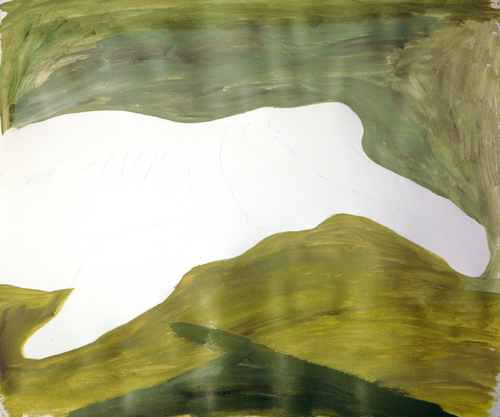
The baiji, a freshwater dolphin known as the “goddess of the Yangtze” is extinct, scientists said this week. The latest search of the river produced no sightings of the species, which lived in the Yangtze for 20 million years. The demise is blamed on overfishing, and the construction of the Three Rivers Dam, the largest hydroelectric river dam in the world, and 5 times the size of the Hoover.
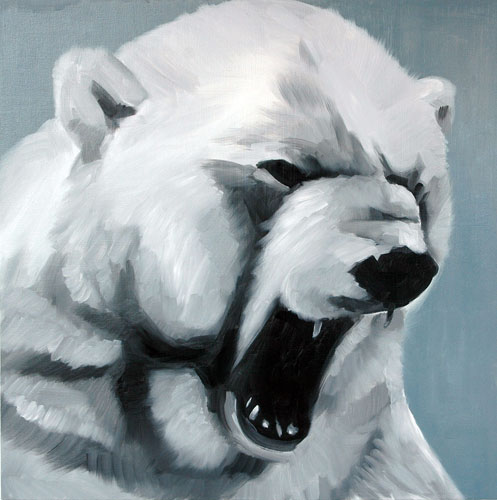
These bears seem to be the poster animals for a warming climate. These big critters can swim 200 miles in a day if they’ve strayed too far from the mainland. Graceful and resilient, they are the biggest of what scientists call a determinate species, that is, other life forms that could determine our future. Generally frogs, birds and plants are in this catagory.
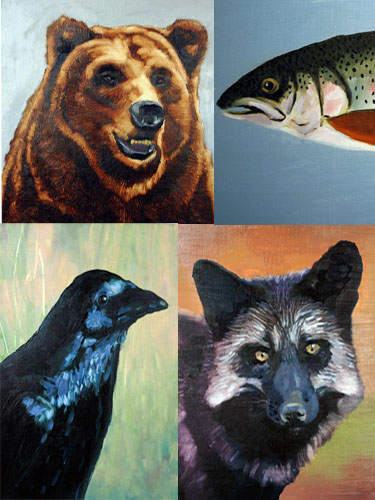
The painter Kerry suggested I post the entire animal series for your viewing pleasure.
The leading cause of vertebrate declines is human destruction of old growth forests, wetlands, chaparral, and other rich habitats. Worldwide, over two-thirds of the earth’s habitable land surface has been significantly disturbed by human activities. Nearly half of the world’s 233 primate species are threatened, largely because of their dependence on large expanses of tropical forest, a habitat under siege around the globe. In hotspots of forest loss, such as Madagascar, the Atlantic rainforest of eastern Brazil, and Southeast Asia, roughly 70 percent of primate species face extinction.
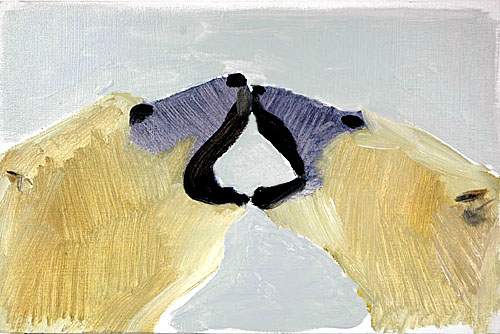
many of these bears will be gone in our lifetime. With the threat of oil and warming the planet holds fewer places for big mammals. Most Americans don’t realize that we’re in a period of mass extinction.



